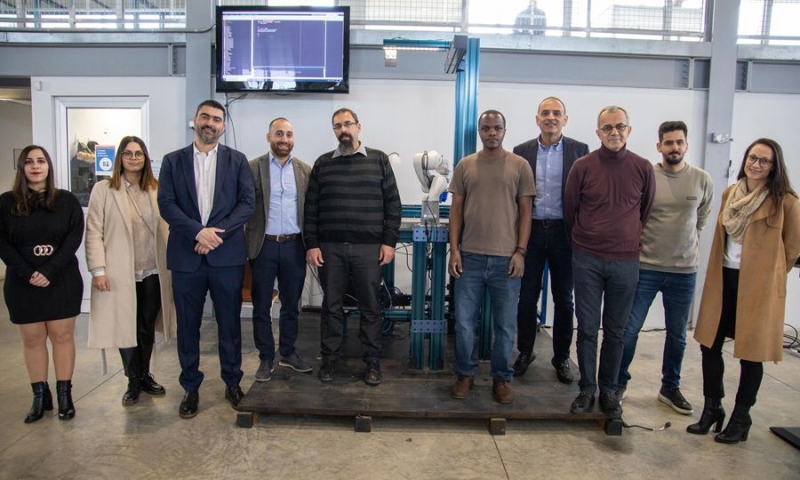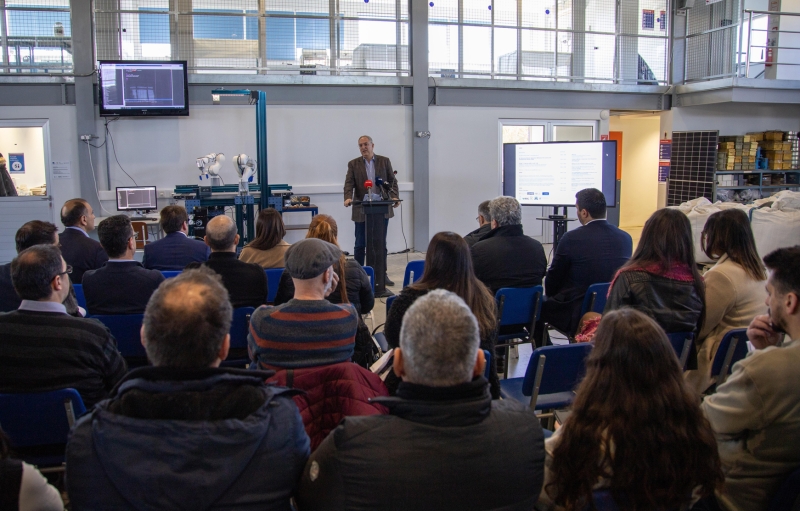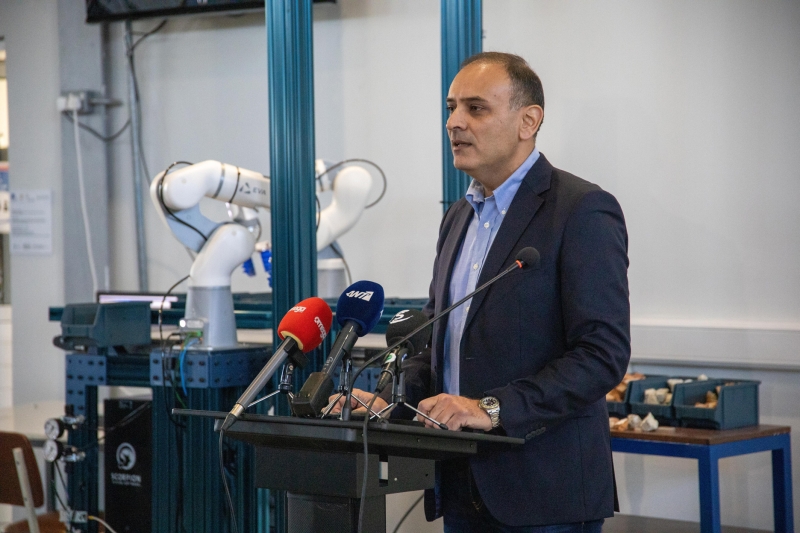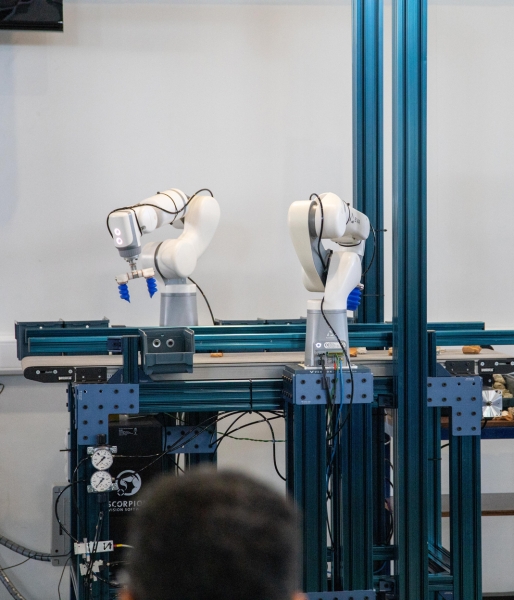The goal of the DEFEAT research project is the utilization of construction waste to create an innovative, fire-resistant and heat-insulating construction material for building facades

The Frederick Research Center (FRC) today presented a prototype robotic construction waste sorting system, which implemented Artificial Intelligence and Image Processing technologies, at the University of Frederick's laboratory facilities. The robotic system was developed in the context of the DEFEAT research project, the aim of which is to utilize construction waste to create an innovative, fire-resistant and heat-insulating construction material for building facades. Every year, approximately 2.2 million tonnes of waste from excavation, construction and demolition are produced in Cyprus, with 57% of this ending up in landfills.
Present at the presentation were the Minister of Agriculture, Rural Development and Environment, Kostas Kadis and the President of the Council of Frederick University, Mrs. Natassa Frederikou. The attendees were welcomed by Dr. Dimitris Nikolaidis, Associate Professor in the Department of Civil Engineering at Frederick University and coordinator of the DEFEAT project.

The goal of the DEFEAT research project is the utilization of construction waste to create an innovative, fire-resistant and heat-insulating construction material for building facades. Each year, approximately 2.2 million tonnes of Excavation, Construction and Demolition (ECD) waste is generated in Cyprus, with 57% of this ending up in landfills.
In his greeting, the Minister of Agriculture, Rural Development and Environment emphasized the importance of such a project which promotes the sustainable management of construction waste and serves the idea of a circular economy, which is an aspiration of Cyprus and the European Union in the context of the Green Agreement. Dr. Kadis said that the DEFEAT project follows exactly the circular economy model, through the reuse of scraps and the creation of a new material. “This rubble probably ended up in a landfill polluting the environment,” he pointed out. The Minister explained, moreover, that even in the most modern construction waste units, their separation is done by manual intervention while none of these units use the cutting-edge technologies implemented in the robotic system of the DEFEAT project. Finally, Dr. Kadis congratulated those who participated in the implementation of the project, stating that the cooperation between university institutions and state bodies is particularly important as new knowledge is transferred and applied directly where needed.

The floor was taken by Mr. Alexis Onoufriou, Director of the FRC, who referred to the research carried out by the research organization, with an orientation towards addressing the challenges of the modern world. Specifically for the DEFEAT project, Mr. Onoufriou noted that it is the result of interdisciplinary collaboration between academic and research institutions, government agencies and industry, with a direct positive impact on the environment.
Dr. Nikolaidis took the floor again presenting the methodology followed and the challenges faced by the research team of the project. Afterwards, Dr. Pavlos Mavrommatidis, Lecturer in the Department of Electrical Engineering, Computer Engineering and Informatics at Frederick University and Researcher at FRC, referred to the implementation process of the standard construction waste sorting system, while Dr. Dimitris Dimitriou, Researcher at the University of Cyprus, referred to the application process of Artificial Intelligence and Image Processing technologies.
The DEFEAT project received funding from the European Regional Development Fund and the Research and Innovation Foundation (RIF) of the Republic of Cyprus, through the RESTART 2016-2020 program. The coordinator of the project is the Frederick Research Center and the partners are the University of Cyprus, the Department of Environment, the Department of Public Works, Farmakas Quarries, the companies RRC, RECS, Stratagem and the Federation of Associations of Contractors and Builders of Cyprus (O.S.E.O. K.). The Katholieke Universiteit Leuven (KUL) also participates in the project as an external body.





